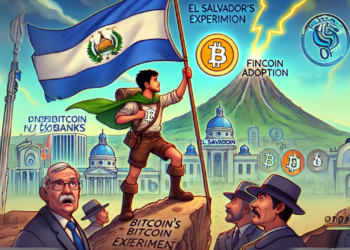When people think of cryptocurrency, Bitcoin is often the first name that comes to mind. However, Ethereum is another major player in the crypto world and serves a different purpose. While Bitcoin is often referred to as “digital gold,” Ethereum is like a programmable platform for building decentralized applications. Let’s dive into what Ethereum is, how it works, and why it stands out.
What is Ethereum?
Ethereum is a decentralized blockchain platform created in 2015 by Vitalik Buterin and a team of developers. Unlike Bitcoin, which is primarily designed to be a digital currency, Ethereum is a platform that allows developers to build applications called “dApps” (decentralized applications). These applications run on a global network of computers instead of relying on a central authority like a bank or a tech company.
At the heart of Ethereum is its native cryptocurrency, Ether (ETH). Ether acts as the fuel for the Ethereum network, allowing users to pay for transactions and computational services.
How Ethereum Differs from Bitcoin
1. Purpose and Use Case
- Bitcoin: Bitcoin was designed as a peer-to-peer electronic cash system. Its primary purpose is to serve as a store of value and a medium of exchange, similar to gold or fiat currencies like the US dollar.
- Ethereum: Ethereum is more than just a cryptocurrency. It’s a platform for running smart contracts and decentralized applications, making it a “world computer.” Developers can create programs that automatically execute specific actions when predefined conditions are met.
2. Smart Contracts
One of Ethereum’s most groundbreaking features is smart contracts. These are self-executing contracts where the terms are directly written into code. For example:
- You could create a smart contract to automatically transfer money once a service is completed.
- Smart contracts eliminate the need for intermediaries, reducing costs and increasing efficiency.
Bitcoin, on the other hand, is limited in functionality and doesn’t support complex programmable features like smart contracts.
3. Block Time and Transaction Speed
- Ethereum has a faster block time (around 12 seconds) compared to Bitcoin’s 10 minutes. This means Ethereum transactions are confirmed much quicker.
- However, Ethereum’s transaction fees, called “gas fees,” can fluctuate depending on network demand, which may affect affordability for users.
4. Consensus Mechanism
- Bitcoin uses a proof-of-work (PoW) consensus mechanism, where miners compete to solve complex puzzles to validate transactions.
- Ethereum is transitioning to a proof-of-stake (PoS) mechanism with Ethereum 2.0. This new system reduces energy consumption and allows users to validate transactions by staking their Ether, making it more environmentally friendly.
The Unique Features of Ethereum
Decentralized Applications (dApps)
Ethereum enables developers to build dApps that operate without downtime, fraud, or interference. These apps cover various industries, including finance, gaming, healthcare, and more. For instance:
- DeFi (Decentralized Finance): Platforms like Uniswap and Aave allow users to trade, lend, and borrow cryptocurrencies without traditional banks.
- NFTs (Non-Fungible Tokens): Ethereum is the backbone of the NFT market, enabling the creation and trade of unique digital assets.
Programmability
Ethereum’s programmability makes it adaptable. Developers can create any type of application, from games to financial tools, leveraging Ethereum’s global network for security and transparency.
Why Ethereum Matters
Ethereum’s ability to support smart contracts and dApps has transformed industries by removing intermediaries and increasing trust. It has also paved the way for innovations like decentralized finance (DeFi) and non-fungible tokens (NFTs). As more developers build on Ethereum, its ecosystem continues to expand, making it a cornerstone of the blockchain revolution.
Conclusion
While Bitcoin and Ethereum are both important cryptocurrencies, they serve very different purposes. Bitcoin is like digital gold, focusing on value storage and transactions. Ethereum, on the other hand, is a versatile platform that powers decentralized applications and smart contracts.
Understanding these differences helps you see why Ethereum is so valuable beyond its cryptocurrency, Ether. Whether you’re a developer or an investor, Ethereum offers unique opportunities that extend far beyond traditional finance.
Disclaimer: This blog is for informational purposes only and does not constitute financial advice. Always do your own research and consult a professional before making any investment decisions.










